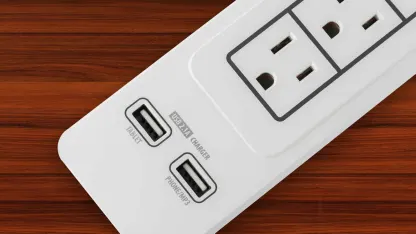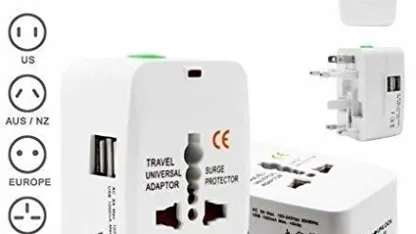2-for-Tuesday: Monster Surge Protectors
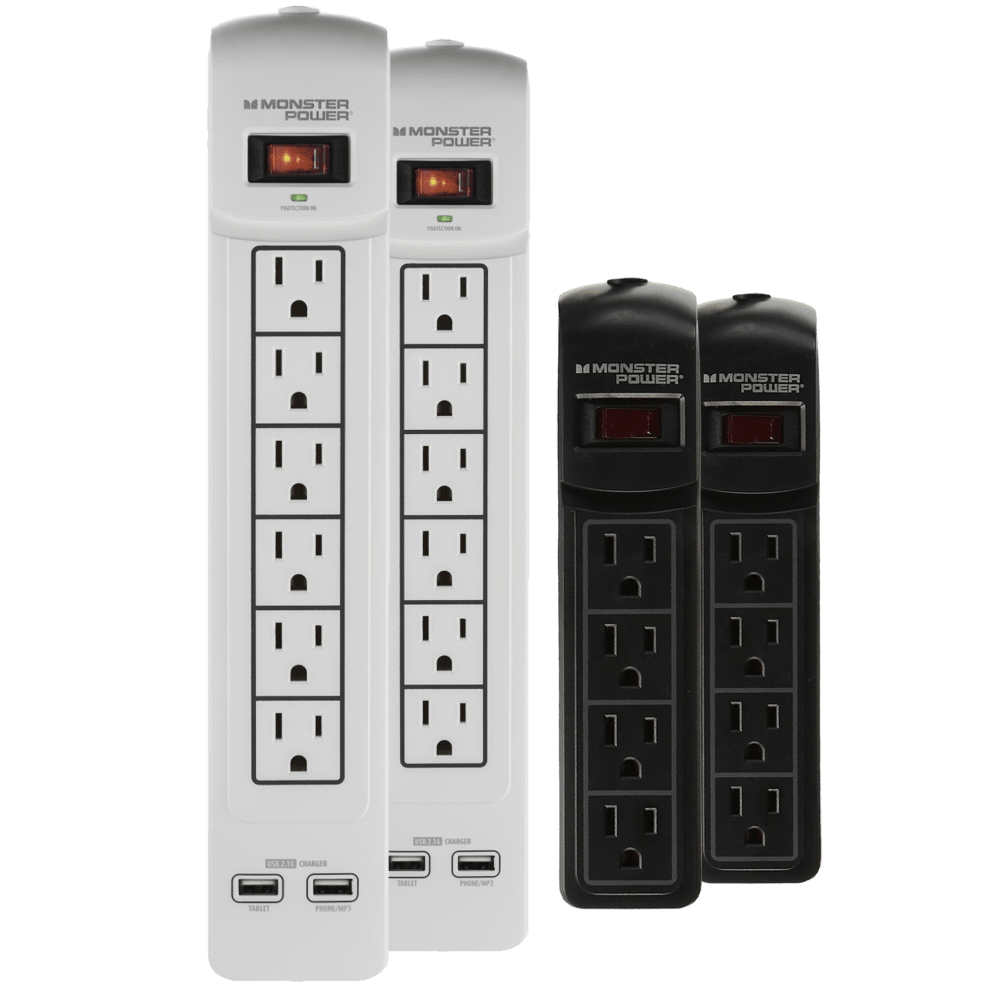
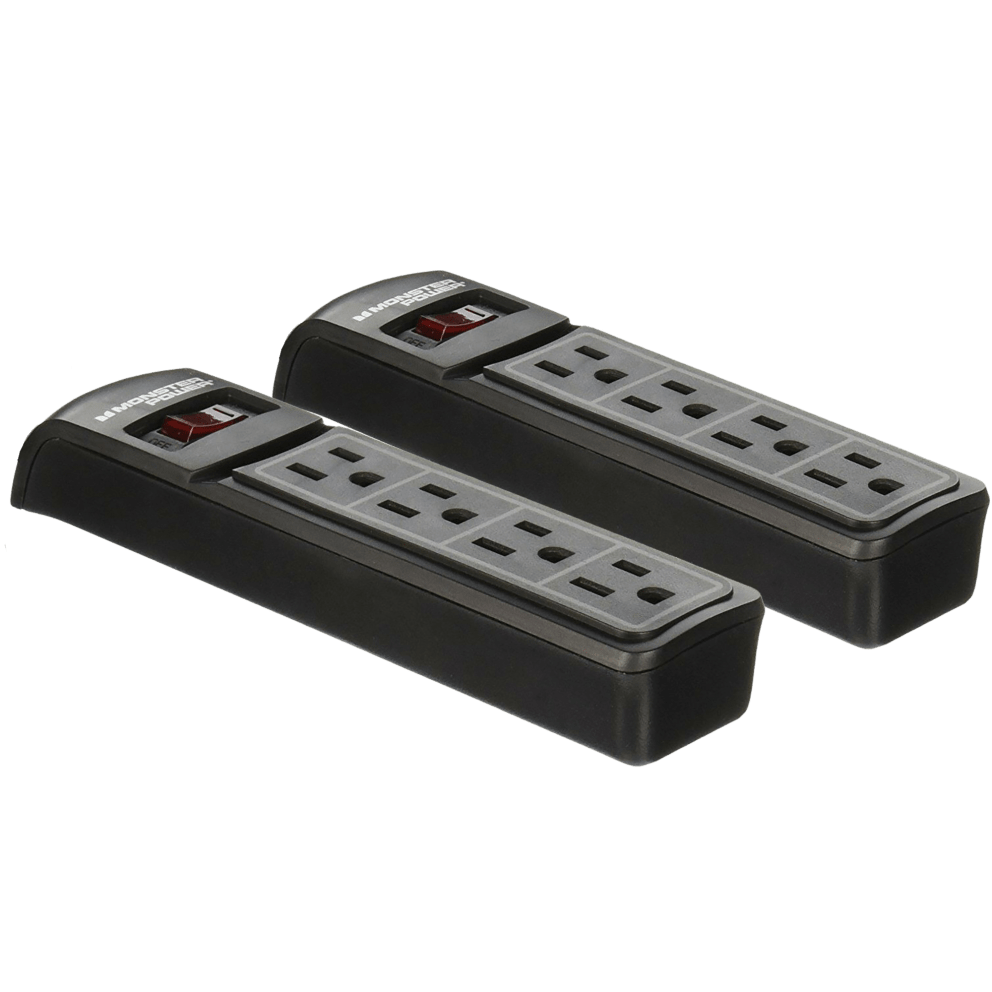
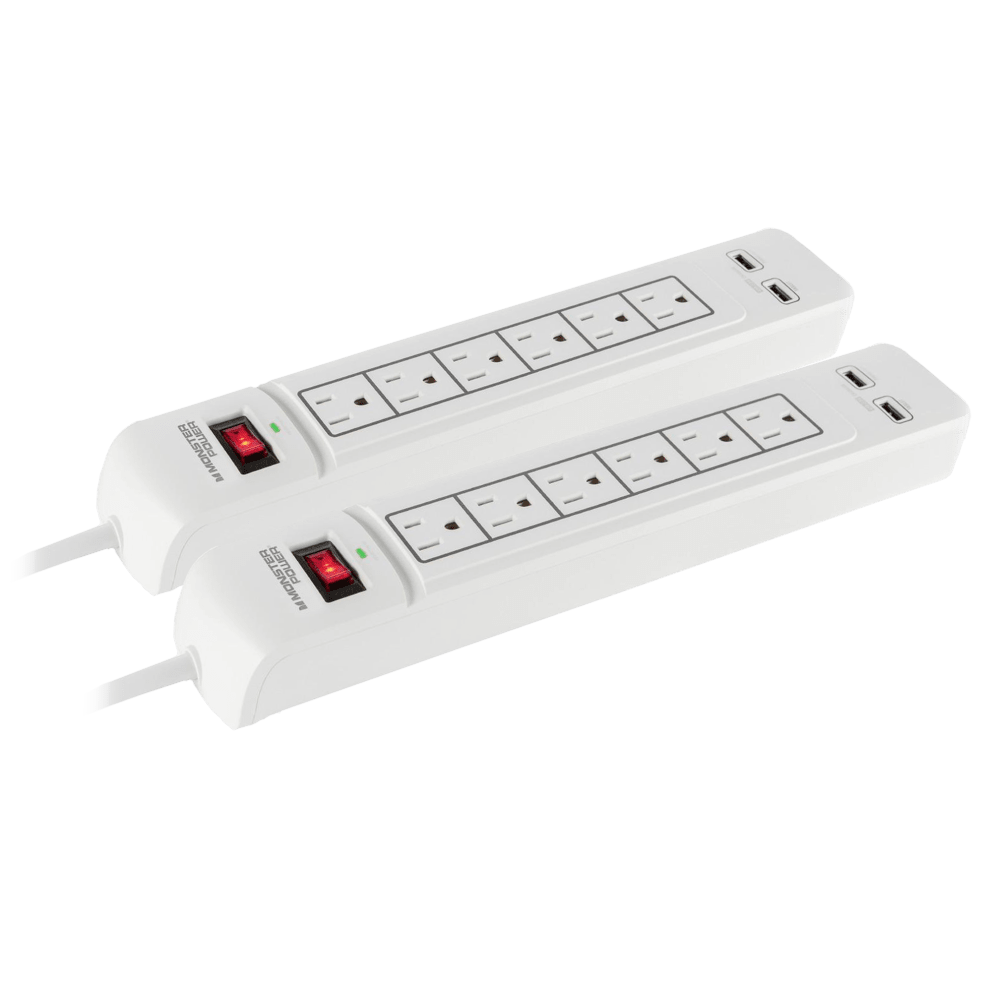
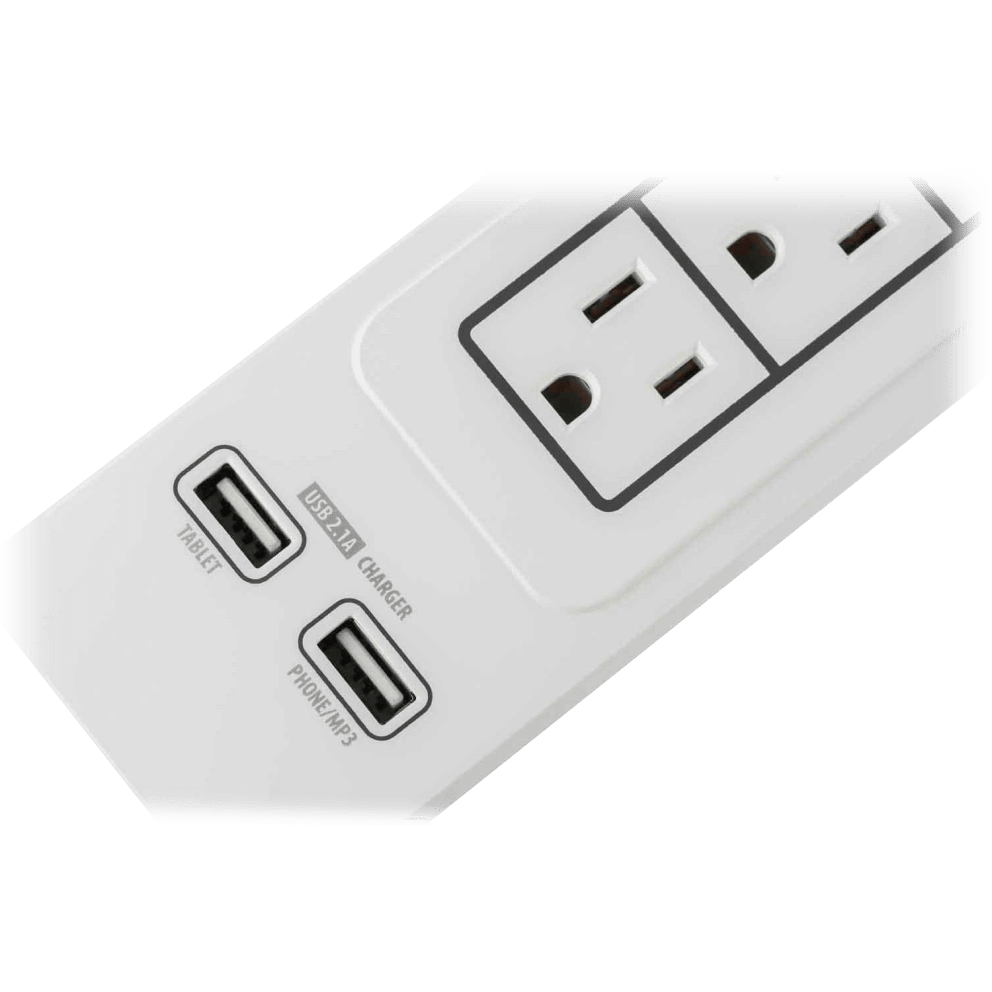
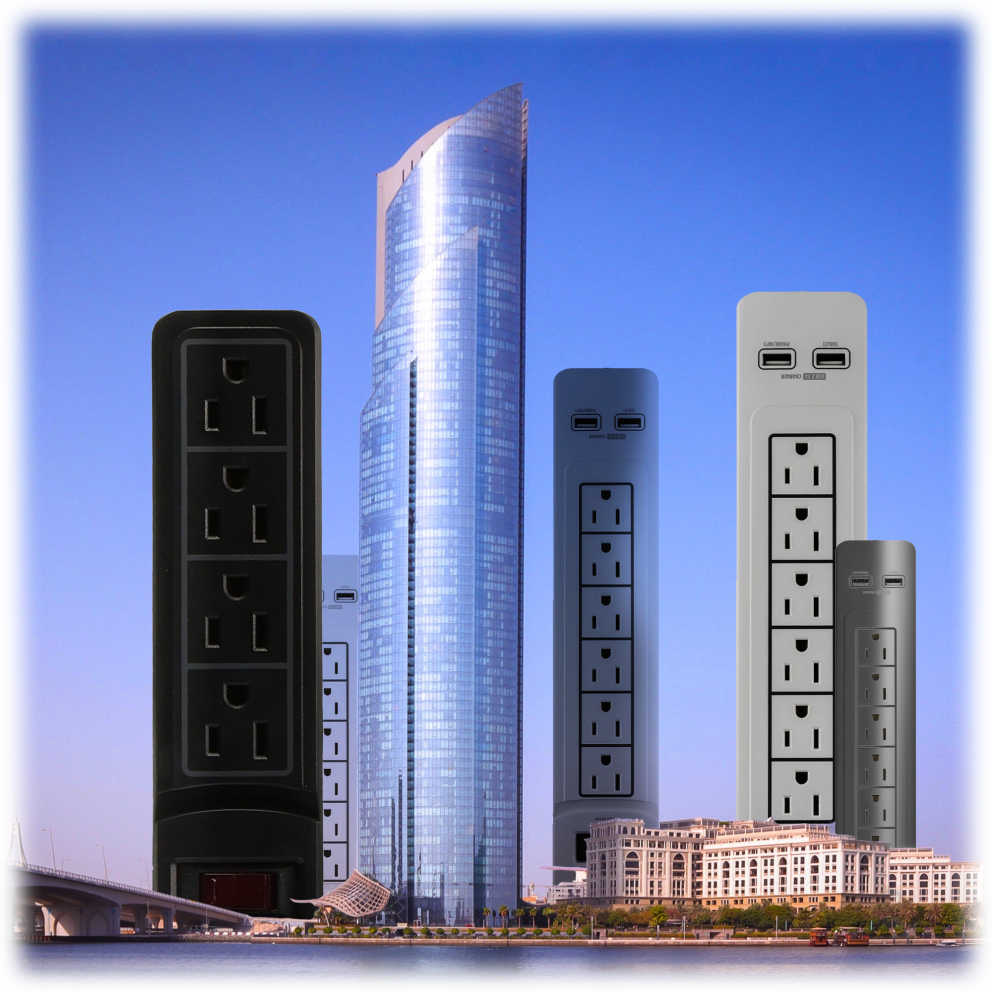
Our Take
- So many outlets, so little time!
- We got longies (6 outlets, 2 USB ports) and shorties (4 outlets).
- You get 2 of a single type. Like, 2 big guys or 2 lil guys. No mixing and matching.
- They also protect your plugged-in stuff from Serge Ibaka, a very skilled forward/center for the Toronto Raptors.
- Wait, sorry, power surges, not power Serges. Our bad.
- 6-outlet strip gives you 1080 joules of protection; smaller one does 540.
- Model: WH0-0UTL3T-TH3-D065.
Your Take
When The Protectors Go Bad
In my mind, the phrase “surge protector” has for a long time meant little more than “bunch-o-outlets.” I remember learning what they actually do–i.e. protect your stuff from dangerous power surges–in school, during a fire safety assembly, maybe when I was in third grade. But whenever I plug one in, I don’t think, “Nice! Now we’re protected!” Instead, I think, “Nice! Now I don’t have to unplug a lamp to plug in a fan!”
So, if you’re like me, and you saw we were selling 2-packs of Monster Surge Protectors in a variety of shapes (okay, 2 of the same shape: one longer strip, one shorter) your first thought was probably, cool, I need more outlets or no thanks, plenty of outlets here.
But did you know that surge protectors can wear out?
That’s according this little article over on the Bad Ass Extension Cords website.
Now, the first sentence claims that surge protectors are also known as “surge suppressors,” which I had never heard before, and which made me think of a treatment for some sort of medical issue I wouldn’t feel comfortable discussing in public. Once I got past that, though, I found some really helpful info. Specifically, this:
Surge protectors are rated in joules, which indicate how much protection the unit is designed to provide. For example, you might have a 500 joule (500J) surge suppressor. The 500J spec is a measure of the total amount of energy the device can absorb before the protection wears out. Once that happens the unit can’t absorb any extra voltage or surge.
And in case you’ve somehow misinterpreted that as the surge protector being able to take up to the amount of joules it’s rated at in a single surge, the article goes on to make it ABUNDANTLY clear that it’s talking cumulatively:
For example, if a surge suppressor rated a 500J takes a 500 joule hit, it’s toast. Likewise, over time, the same result will occur if it receives five 100 joule hits — or if it gets five hundred 1 joule hits.
But really perhaps the best tidbit of info is stashed in a brief parenthetical aside:
(Quick tip: if you can’t remember when you bought [the surge protector], get a new one.)
So, do you remember when you last bought surge protectors?
(And please, don’t scroll through your Meh orders page. That’s cheating and you know it!)

